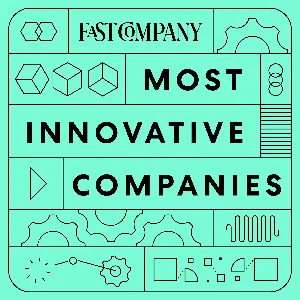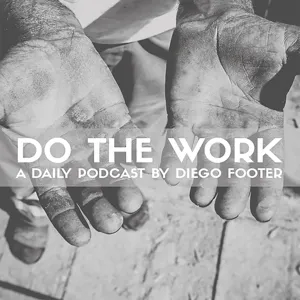Podcast Summary
Challenges for various businesses and industries: Despite innovation and hype, businesses face ongoing challenges such as legal issues, market shifts, and ethical dilemmas.
Despite the hype and excitement surrounding new companies and technologies, some entities continue to face significant challenges. For instance, Donald Trump's Media and Technology Group has seen a sharp decline in its stock price since its public debut, which can be attributed to various factors including the issuance of new shares and ongoing legal issues. Elsewhere, Boeing is still grappling with the aftermath of past disasters, as evidenced by its stock price taking a hit and the need for substantial change. In the world of innovation, GEA's Melanie Maserin discussed the growing market for alcohol-free spirits, highlighting how the company is taking market share away from traditional alcohol brands. Meanwhile, Meta is facing scrutiny over its handling of AI-generated sexually explicit images, and the IRS reported an increase in average income tax refunds. Lastly, the WNBA's Caitlin Clark was drafted first overall, leading to surging ticket prices, while a study revealed that some hiring managers admit to asking illegal questions during job interviews. Overall, these stories underscore the complexities and challenges faced by various businesses and industries.
Boeing's Public Image Crisis: Safety Concerns and Flying Anxiety: Boeing faces a public image crisis due to safety concerns, causing anxiety among travelers, but flying remains statistically safer than other modes of transportation.
Boeing, a major player in the aviation industry with approximately 36% market share, has recently faced a public image crisis due to a series of safety concerns. These issues include a door blowing off mid-flight and sudden nosedives causing injuries. The narrative around Boeing's planes being unsafe has led to increased scrutiny and anxiety among travelers. While safety issues are not unique to Boeing, the company's public perception is suffering. Additionally, the speakers in the discussion shared their personal experiences with flying anxiety and the stress of airport security. Despite these concerns, it's important to remember that flying remains statistically safer than other modes of transportation.
Boeing's Cultural Shift Post-Merger: Boeing's shift in corporate culture following its merger with McDonnell Douglas in 1997 prioritized business acumen over engineering expertise, leading to decades-long problems and recent safety issues with the 737 planes.
The current PR crisis faced by Boeing can be traced back to the company's shift in corporate culture following its merger with McDonnell Douglas in 1997. Prior to the merger, Boeing was known for its strong engineering-focused culture based in Seattle. However, after the merger, the McDonnell Douglas side took over, leading Boeing to pivot away from this engineering-centric culture and towards one run by finance people. This move, which was symbolized by Boeing's departure from Seattle, has resulted in a decades-long problem that has not been adequately addressed by the company. The recent grounding of the 737 planes due to safety issues is just the latest manifestation of this problem. While individual incidents may raise concerns, the larger issue is the underlying cultural shift within Boeing that has prioritized business acumen over engineering expertise.
Boeing's recent safety issues under public scrutiny: Despite less catastrophic incidents, Boeing faces skepticism due to social media, past crises, and lack of transparency, leading to decreased investor confidence and shares at less than half their 2019 peak.
Boeing's recent safety issues, while less catastrophic than those in 2018-2019 when hundreds of lives were lost, have faced increased scrutiny due to the prevalence of social media. The public image war has been intensified by the viral spread of incidents, such as a door falling off an Alaska Airlines plane in mid-flight. Boeing's history of handling crises, including large fines from the Department of Justice, raises doubts about their ability to effectively address the current situation. Additionally, Boeing's shares are currently at less than half their peak in 2019, and investors have yet to react positively to the company's leadership shake-up and lack of transparency. The company's slow response and reluctance to be forthcoming have further fueled public skepticism.
Boeing Faces Safety Concerns and Reputation Damage: Boeing faces multiple challenges, including whistleblower allegations, investigations, and a decline in plane deliveries, which could impact the safety and quality of their planes and harm their reputation and stock price.
Boeing is facing multiple challenges, including whistleblower allegations, investigations, and a decline in plane deliveries. These issues have contributed to concerns about the safety and quality of Boeing's planes, leading to potential damage to the company's reputation and stock price. Whistleblowers, such as John Barnett and Sam Salapour, have come forward with claims of Boeing producing planes too quickly and cutting corners on safety. These allegations include improperly fastened fuselage panels on the Dreamliner, which could potentially cause the plane to fail in mid-flight. Boeing has reported a significant drop in plane deliveries for the first quarter of 2024, but it remains to be seen if this will be enough incentive for the company to make substantial changes. Despite efforts to improve public perception, such as an executive reshuffle and a PR trip to South Carolina, the company has not yet addressed these concerns in a transparent and satisfactory way for the general public.
Direct sales played a crucial role in the early success of non-alcoholic beverage brands: Non-alcoholic beverage brands like Nowadays and GEA gained initial success through direct sales on social media platforms, but had to pivot to online sales due to restaurant closures during the pandemic. Both companies have seen significant growth and are expected to benefit from the rising demand for non-alcoholic beverages.
Direct-to-consumer sales played a crucial role in bringing attention to non-alcoholic beverage brands like Nowadays and GEA, even before they were picked up by alcohol distributors. Justin Tidwell of Nowadays shared how their initial success came from the high demand they saw through direct sales on social media platforms. However, the unexpected closure of restaurants due to COVID-19 forced them to pivot and sell online only. Melanie Mazarin of GEA mentioned that they initially aimed to introduce their product to the culinary world through restaurant partnerships, but the pandemic disrupted their plans. Instead, they relied on direct sales to grocers and small retailers to grow their business. Despite the challenges, both companies have seen significant growth and are forecasted to benefit from the increasing demand for non-alcoholic beverages.
Growing Market for Non-Alcoholic Beverages: The non-alcoholic beverage market is expanding due to consumer preferences for moderation and functional beverages, catering to all ages, and offering high-quality, tasty alternatives to water or alcohol.
The market for non-alcoholic beverages is growing rapidly, driven by a combination of factors including consumer preferences for moderation and a larger market size than initially anticipated. Companies like Melanie's GEA Beverages and Justin's Nowadays are finding success by offering products that serve as alternatives or supplements to alcohol, rather than strictly catering to those who don't drink at all. The trend towards non-alcoholic beverages is being driven by consumers of all ages, with younger generations showing a particular interest in functional beverages and ready-to-drink options. The motivation behind this trend comes from both personal lifestyle choices and societal needs, as people seek out better alternatives to water or alcohol. Companies in this space are finding success by addressing these needs and providing consumers with high-quality, tasty options that fit into their daily lives.
Creating a unique brand for non-alcoholic beverages: Non-alcoholic beverage companies need to create distinct brands that don't resemble alcoholic beverages, instead focusing on wellness and unique offerings to appeal to modern consumers. Big alcohol companies are investing in this space to stay relevant.
Effective branding is key for non-alcoholic beverage companies to stand out and appeal to modern consumers. Melanie, the founder of Guiab, emphasized the importance of creating a brand that doesn't position itself as a lesser version of alcoholic beverages, but rather as its own celebratory and joyful entity. She drew inspiration from old aperitif brands and focused on making the product fit into today's world by addressing consumers' changing preferences towards wellness and opting in and out of drinking. Justin added that big alcohol conglomerates are investing in the non-alcoholic space due to the shift in consumer behavior, where people are drinking less and gravitating towards craft, unique, and genuine brands. These companies are keeping a close eye on the trend and acquiring smaller brands to stay relevant. During occasions like Saint Patrick's Day, non-alcoholic beverage companies, such as Guiab, have seen an increase in revenue and social media activities, indicating that people are gravitating towards these products to celebrate.
Growing popularity of non-alcoholic beverages during holidays and periods of abstinence: Societal shifts drive the growth of non-alcoholic beverages, with consumers seeking safer, pressure-free experiences during holidays and periods of abstinence. The trend extends to offline sales and is boosted by the rise of cannabis legalization.
Non-alcoholic beverages are gaining popularity, especially during holidays and periods of abstinence like Dry January. The trend is driven by societal shifts, with people exploring new alternatives to alcohol and seeking safer, pressure-free experiences. This trend is not limited to online sales but extends to offline sales as well. The rise of cannabis legalization may also be contributing to this trend, as consumers who are open to trying new substances are often early adopters of non-alcoholic beverages. The non-alcoholic beverage market is still new and competitive, but it is expected to grow steadily in the coming years. While hard data is not readily available for every holiday or location, general trends show spikes during celebratory periods and in areas with high cannabis usage. The non-alcoholic beverage industry is benefiting from the novelty factor and the growing demand for safer, socially acceptable alternatives to alcohol.
Potential exit outcomes for non-alcoholic beverage companies: Non-alcoholic beverage companies can be acquired by larger alcohol or cannabis firms, go public, or grow independently. Entrepreneurs prioritize building successful businesses while recognizing benefits of partnerships for expansion.
Non-alcoholic beverage companies, like the ones discussed, have various potential exit outcomes. These include being acquired by larger alcohol or cannabis companies, becoming part of a big alcohol conglomerate through an IPO, or continuing to grow independently with a focus on capturing market share from traditional alcoholic beverage categories. The entrepreneurs behind these companies emphasized their dedication to building successful businesses, but also acknowledged the benefits of partnering with larger entities to expand their reach and offerings. They believe that the non-alcoholic beverage industry is poised for significant growth and that these outcomes are viable as the category continues to gain traction.
A boy and his octopus: The unexpected pet story: Unexpected pet stories on social media can bring joy, surprise, and significant lifestyle changes
Social media continues to surprise us with unique and unexpected stories. Clint shared a fascinating tale about a 9-year-old boy named Cal and his pet octopus, Terrence, who gave birth to an astonishing 50 babies. The Clifford family's home has been turned upside down trying to care for the octopuses, leading to significant expenses and lifestyle changes. On a different note, Josh discussed Jojo Siwa's attempt to transition from a Disney Channel star to a serious adult artist. Unfortunately, her recent song release and image overhaul have not gone as planned, leaving many questioning her motivation and authenticity. Both stories showcase the unpredictability and intrigue of social media, keeping us engaged and entertained.
Jojo Siwa's songwriting controversy and cultural discoveries: Pop star Jojo Siwa faced a songwriting controversy with Britt Smith, while a YouTube channel showcased tribal leaders experiencing Western culture for the first time, highlighting the power of culture and discovery to bring people together.
There have been some intriguing developments surrounding Jojo Siwa recently. The pop star has been involved in a songwriting controversy with another artist, Britt Smith, over the ownership of the song "Karma's a Bitch." Additionally, Siwa made headlines for her apparent lack of knowledge about certain Western cultural references, such as Jean Simmons and Led Zeppelin's "Stairway to Heaven." Meanwhile, a YouTube channel called Trivals has gained popularity for showcasing tribal people from Pakistan experiencing Western culture for the first time. The channel has produced entertaining and heartwarming videos of tribal leaders reacting to Western music and ideas, highlighting the universality of human curiosity and connection. Despite the controversies surrounding Siwa, it's clear that the power of culture and the joy of discovery can bring people together in unexpected ways. Stay tuned for more updates on Most Innovative Companies.





![Everyone’s Lying - Your 20’s Actually Suck [VIDEO]](https://www.podcastworld.io/podcast-images/call-her-daddy-ipzbwrwz.webp)
